Search
Remove Ads
Advertisement
Summary 
Loading AI-generated summary based on World History Encyclopedia articles ...
Search Results
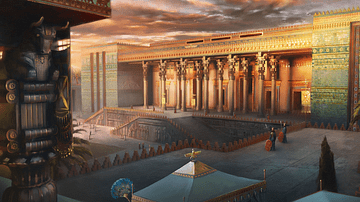
Article
Herodotus: On The Customs of the Persians
Although the Greek historian Herodotus (l. c. 484-425/413 BCE) is often criticized for inaccuracy in his Histories, his frequently-anthologized On the Customs of the Persians is regarded as accurate. The passage is all the more interesting...

Definition
Leo Africanus
Leo Africanus (al-Hasan ibn Muhammad ibn Ahmad al-Wazzan al-Fasi al-Granati, 1485-1554) was a diplomat, merchant traveller and scholar who famously voyaged from Timbuktu to the Niger River and wrote 'The Description of Africa' (La Descrittione...
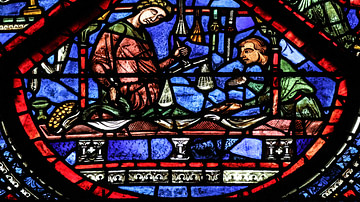
Article
Eyes on the East: Chronicles of the Indian Ocean Spice Trade
As the 15th century ended, Europeans were still mostly in the dark about the Eastern world. Early travelers like Marco Polo had given the West tidbits of information, but these accounts were too highly colored and fragmentary to provide a...
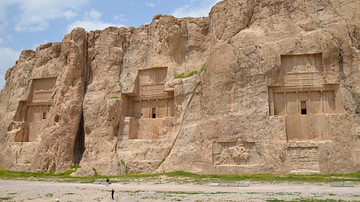
Article
Achaemenid Kings List & Commentary
The Achaemenid Empire (c. 550-330 BCE) was the first great Persian political entity in Western and Central Asia which stretched, at its peak, from Asia Minor to the Indus Valley and Mesopotamia through Egypt. It was founded by Cyrus II (the...
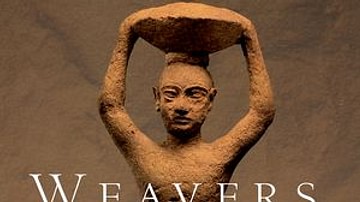
Interview
Weavers, Scribes, and Kings: A New History of the Ancient Near East with Amanda H. Podany
In this interview, World History Encyclopedia sits down with author and Assyriologist Amanda H. Podany to learn all about her new book Weavers, Scribes, and Kings: A New History of the Ancient Near East published by Oxford University Press...
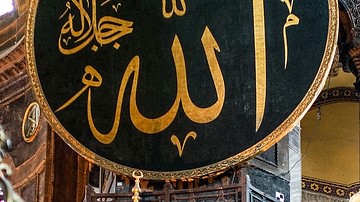
Image
Name of Allah in Arabic Calligraphy
A medallion with the phrase "Allah Jalla Jalaluhu" ("May His glory be glorified"), in Arabic calligraphy. The medallion was installed in the Hagia Sophia between 1847 and 1849 CE when the building was restored by Ottoman sultan Abdulmejid...
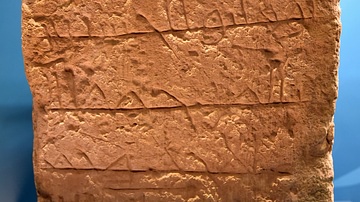
Image
Arabic Inscription from Petra
Over a thousand years old, this Arabic inscription was found in Wadi Musa, just outside of Petra. This limestone block was a tombstone dedicated to the memory of an important man then, Abu al-Husayn ibn Abdullah, who died in 787 CE. The inscription...
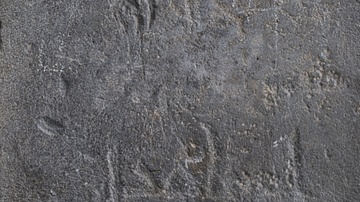
Image
Arabic Graffiti at the Temple of Garni
The Arabs invaded and conquered Persian and Byzantine Armenia in 630s and 640s CE, respectively. At Garni Temple, there is Arabic graffiti along the walls, which is dated to the 9th-10th centuries CE.

Article
Battle of Kings Mountain
The Battle of Kings Mountain (7 October 1780) was a significant battle of the American Revolutionary War (1775-1783), fought in the backcountry of South Carolina between large parties of Patriot and Loyalist militias. The battle exemplified...
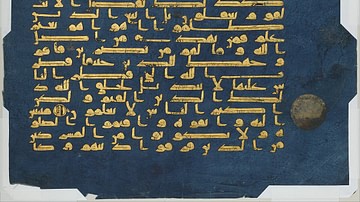
Definition
Quran
The Quran (also written Qur’an or Koran), revealed in the 7th century, is the sacred book of Islam, following in the tradition of the Abrahamic faiths, with the Torah as the sacred book of Judaism and the New Testament as the sacred book...